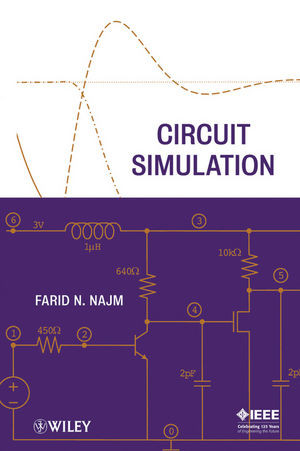

Most ebook files are in PDF format, so you can easily read them using various software such as Foxit Reader or directly on the Google Chrome browser.
Some ebook files are released by publishers in other formats such as .awz, .mobi, .epub, .fb2, etc. You may need to install specific software to read these formats on mobile/PC, such as Calibre.
Please read the tutorial at this link: https://ebookbell.com/faq
We offer FREE conversion to the popular formats you request; however, this may take some time. Therefore, right after payment, please email us, and we will try to provide the service as quickly as possible.
For some exceptional file formats or broken links (if any), please refrain from opening any disputes. Instead, email us first, and we will try to assist within a maximum of 6 hours.
EbookBell Team

4.7
96 reviewsCircuit Simulation gives a clear description of the numerical techniques and algorithms that are part of modern circuit simulators, with a focus on the most commonly used simulation modes: DC analysis and transient analysis. Tested in a graduate course on circuit simulation at the University of Toronto, this unique text provides the reader with sufficient detail and mathematical rigor to write his/her own basic circuit simulator. There is detailed coverage throughout of the mathematical and numerical techniques that are the basis for the various simulation topics, which facilitates a complete understanding of practical simulation techniques. In addition, Circuit Simulation:
Explores a number of modern techniques from numerical analysis that are not synthesized anywhere else
Covers network equation formulation in detail, with an emphasis on modified nodal analysis
Gives a comprehensive treatment of the most relevant aspects of linear and nonlinear system solution techniques
States all theorems without proof in order to maintain the focus on the end-goal of providing coverage of practical simulation methods
Provides ample references for further study
Enables newcomers to circuit simulation to understand the material in a concrete and holistic manner
With problem sets and computer projects at the end of every chapter, Circuit Simulation is ideally suited for a graduate course on this topic. It is also a practical reference for design engineers and computer-aided design practitioners, as well as researchers and developers in both industry and academia.Content:
Chapter 1 Introduction (pages 1–12):
Chapter 2 Network Equations (pages 13–47):
Chapter 3 Solution of Linear Algebraic Circuit Equations (pages 49–126):
Chapter 4 Solution of Nonlinear Algebraic Circuit Equations (pages 127–200):
Chapter 5 Solution of Differential Circuit Equations (pages 201–303):